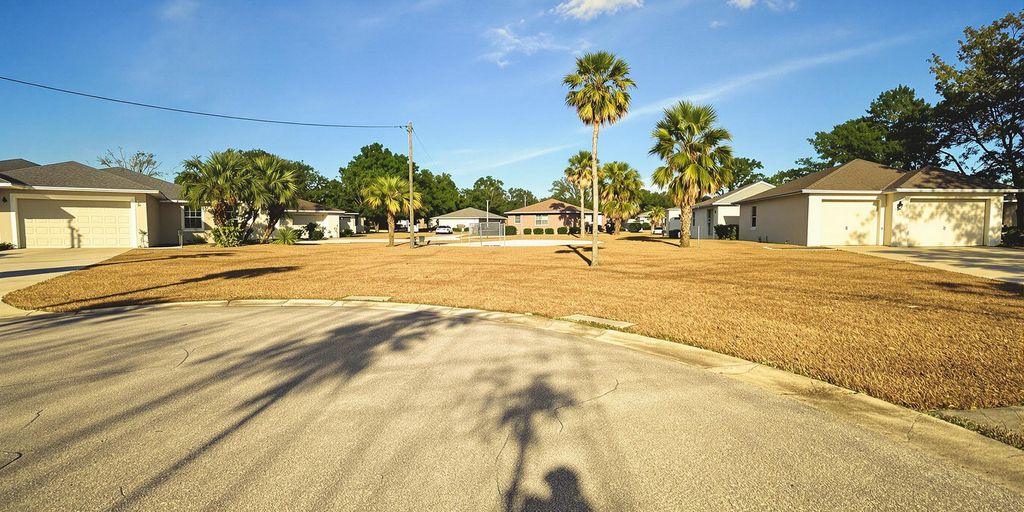Florida’s housing market, once a beacon of rapid growth, is now experiencing a significant downturn. A combination of falling prices, surging inventory, and dwindling demand marks a stark reversal from the pandemic-era boom, impacting numerous cities across the Sunshine State.
Florida’s Housing Market Cools Down
The Sunshine State’s housing market is undergoing a notable correction, with several metropolitan areas reporting price declines. This shift comes after years of unprecedented growth, fueled by an influx of residents and remote workers during the pandemic. However, high mortgage rates, escalating insurance premiums, and rising homeowner association (HOA) fees are now dampening buyer enthusiasm and increasing the cost of homeownership.
Key Takeaways
- Price Declines: Ten Florida metro areas saw home price declines in the first quarter of 2025. Sebastian experienced the most significant drop at 8.2%, followed by Punta Gorda at 6.8%. Other cities like Cape Coral, North Port-Sarasota-Bradenton, Lakeland-Winter Haven, Deltona-Daytona Beach-Ormond Beach, Gainesville, Tampa-St. Petersburg-Clearwater, Palm Bay-Melbourne-Titusville, and Port St. Lucie also recorded decreases.
- Record Inventory: Florida ended January with a record 172,209 homes for sale, a 22.7% increase year-over-year. This surge is attributed to increased construction, slowing demand, and homeowners selling due to rising costs. Active listings are at record highs in eight Florida metros, many of which are coastal.
- Affordability Crisis: Despite price corrections, affordability remains a major hurdle. The median home price in Florida is $395,000, making it challenging for many residents to afford. Rising property insurance premiums and HOA fees further exacerbate this issue, particularly for condo owners in South Florida.
- Slowing In-Migration: The pandemic-era migration boom to Florida has tapered off, contributing to reduced demand. Analysts suggest that the state’s housing market may be entering a multi-year correction phase, requiring further price adjustments to restore affordability and attract buyers.
- Buyer’s Market: With abundant inventory, Florida is shifting into a buyer’s market. Sellers are finding it necessary to offer concessions and ensure their homes are in pristine condition to attract offers. Bidding wars are now rare.
Factors Contributing to the Downturn
Several factors are converging to reshape Florida’s housing landscape:
- High Mortgage Rates: Sustained high mortgage rates have made homeownership more expensive, reducing purchasing power for many prospective buyers.
- Soaring Insurance Costs: Florida homeowners face the highest property insurance premiums in the nation, with rates expected to continue rising. This adds a significant financial burden.
- Increased HOA Fees: New regulations, particularly for condominiums following the Surfside collapse, have led to soaring HOA fees, making condo ownership less attractive.
- Oversupply of Homes: Years of robust construction, coupled with a slowdown in demand, have led to a significant oversupply of homes on the market.
- Reduced In-Migration: The once-strong flow of new residents to Florida has slowed, diminishing the pool of potential buyers.
Outlook for the Florida Housing Market
While some analysts suggest the current trends represent a necessary correction, others warn of a more prolonged downturn. The market is expected to remain challenging for sellers, with homes sitting on the market longer. For buyers, patience and thorough research are advised, as opportunities may emerge in a market that is increasingly favoring them.
Sources:
- Florida House Prices Are Falling in Nearly a Dozen Cities, Newsweek.
- Redfin Reports Florida Has More Homes for Sale Than Ever Before, Business Wire.
- 2 Florida Housing Markets Flagged for a Major Price Decline Risk, Norada Real Estate Investments.
- South Florida Homes for Sale Quadruple As Residents Leave En Masse, Newsweek.
- Florida’s COVID-era housing boom is in the rearview mirror, New York Post.


